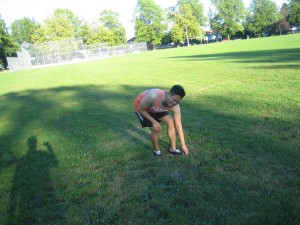Tetanus is a serious form of bacterial infection affecting the nervous system and causes tightening of the muscles all over the body. It is also known as lockjaw since the infection often causes muscular contractions in the jaw and neck. Nevertheless, it can later spread to other body parts.
The infection can be dangerous without treatment. A small percentage of cases can be deadly.
It is considered as a medical emergency that necessitates medical treatment in a healthcare facility. Luckily, it can be prevented with vaccination. The vaccine requires a booster shot every 10 years to ensure immunity.
What is the cause?
The Clostridium tetani bacteria is the root cause of tetanus. The bacterial spores are usually present in dirt, dust and animal droppings.
An individual can become infected if the spores move into the bloodstream via a cut or deep wound. The bacteria spreads to the central nervous system and produce tetanospasmin toxin.

The toxin blocks the nerve signals from the spinal cord to the muscles which leads to severe muscular spasms.
Tetanus has been linked with the following:
- Burns
- Crush injuries
- Injuries involving dead tissue
- Puncture wounds from injuries, piercings or tattoos
- Wounds contaminated by feces, dirt or saliva.
What are the signs?
Tetanus involves the nerves controlling the muscles which can lead to difficulty swallowing. It can be accompanied by spasms and rigidity in different muscles especially in the abdomen, jaw, back, chest and neck.
Other usual symptoms include:
- Fever
- Rapid heart rate
- Sweating
- High blood pressure
The signs typically arise within 14 days of the initial infection. In cases where the infection occurs faster after exposure, they are generally severe and have a poor outcome.
Management of tetanus
The treatment for tetanus is based on the seriousness of the symptoms. The condition is typically managed with various treatment options such as:
- Antibiotics such as penicillin to eliminate the bacteria in the body
- Tetanus immune globulin (TIG) to neutralize the toxins produced by the bacteria
- Muscle relaxants to control the muscle spasms
- Tetanus vaccine
- Cleansing of the wound to eliminate the source of the bacteria
In some instances, debridement is performed to get rid of dead or infected tissue. If the individual has difficulty swallowing and breathing, a breathing tube or ventilator is required.
